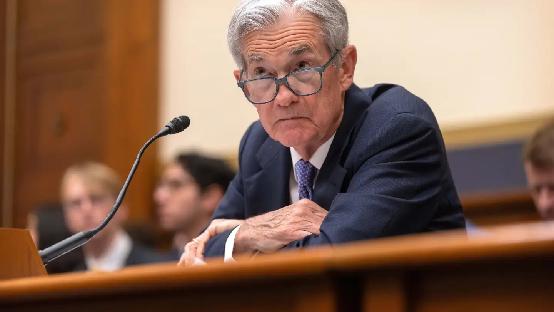
Federal Reserve Chairman Jerome Powell stated on Tuesday that the Fed will continue to wait and observe how the economy develops before deciding whether to lower its key interest rate, a stance that directly contradicts President Donald Trump's call for an immediate rate cut.
Trump is urging the Federal Reserve to cut interest rates to save the US government from paying interest on its massive national debt. However, when making interest rate decisions, the Federal Reserve has long been unwilling to consider the government's financing costs and tends to focus on the health of the economy and inflation.
Powell testified before the House Financial Services Committee on Tuesday, stating, "Currently, we are in a favorable position to wait for more information about the possible direction of the economy before considering adjusting our policy stance." Several Republicans on the committee urged Powell to consider reducing borrowing costs at a faster pace during the hearing, and even suggested taking action at the next meeting at the end of July. At present, members of both parties have expressed gratitude for Powell's continued focus on the Federal Reserve's efforts to control inflation and promote maximum employment. Powell has repeatedly mentioned his support in Congress as a barrier against Trump's attacks. Earlier on Tuesday, Trump launched another attack by posting on his social media website, saying, "I hope Congress can really end this very foolish and stiff headed person. For many years to come, we will pay the price for his incompetence
After Powell became the chairman of the Federal Reserve, every speech he made was seen as the official voice of the Fed. Faced with pressure from Trump to cut interest rates, Powell stated that the Federal Reserve's decision should be based on objective judgments of economic data and trends, and should not yield to political pressure. This is a manifestation of the Federal Reserve's role as an independent and professional bank.
In addition, Powell's postponement of interest rate cuts means that the Federal Reserve's monetary policy has become restrained. Whether the Federal Reserve will cut interest rates depends on multiple factors: economic growth, employment, inflation, and the international economic environment. Currently, the uncertainty of tariffs affecting US economic growth requires the Federal Reserve to be more cautious before taking action to prevent unnecessary shocks to the economy.
From this perspective, Powell's statement reflects both the independence of the Federal Reserve itself and its cautious and prudent approach to monetary policy decision-making, which is conducive to maintaining financial market stability and sustained economic development.
At the same time, Powell's statement also sends a clear signal to the market: the Federal Reserve's monetary policy decisions are based on comprehensive considerations of economic data and the economic situation, rather than a single political factor or the demands of individual interest groups. This helps to enhance market confidence and expectations in the Federal Reserve's decisions, reducing unnecessary market volatility and risk. Powell's statement also reminds us that monetary policy is not omnipotent, and its effectiveness is also constrained and influenced by various factors. When facing complex and ever-changing economic situations, we need to analyze various factors more comprehensively and deeply in order to formulate more scientific and reasonable monetary policies.
In summary, the delay of the Federal Reserve's interest rate cut plan reflects not only the Fed's independence and prudence, but also provides us with information on the need to consider policy formulation as a whole, whether policies solve all problems, and the need to delineate political and economic boundaries.

The South Korean political arena has once again been embroiled in a public controversy over a judicial investigation that has shaken the entire nation.
The South Korean political arena has once again been embroi…
On the morning of December 29th local time, the precious me…
According to the US media Barchart, recently, the fluctuati…
On December 29th, Mar-a-Lago in Florida, USA, witnessed a h…
SoftBank Group announced on Monday that it has agreed to ac…
Recently, the US State Department issued a visa ban, adding…